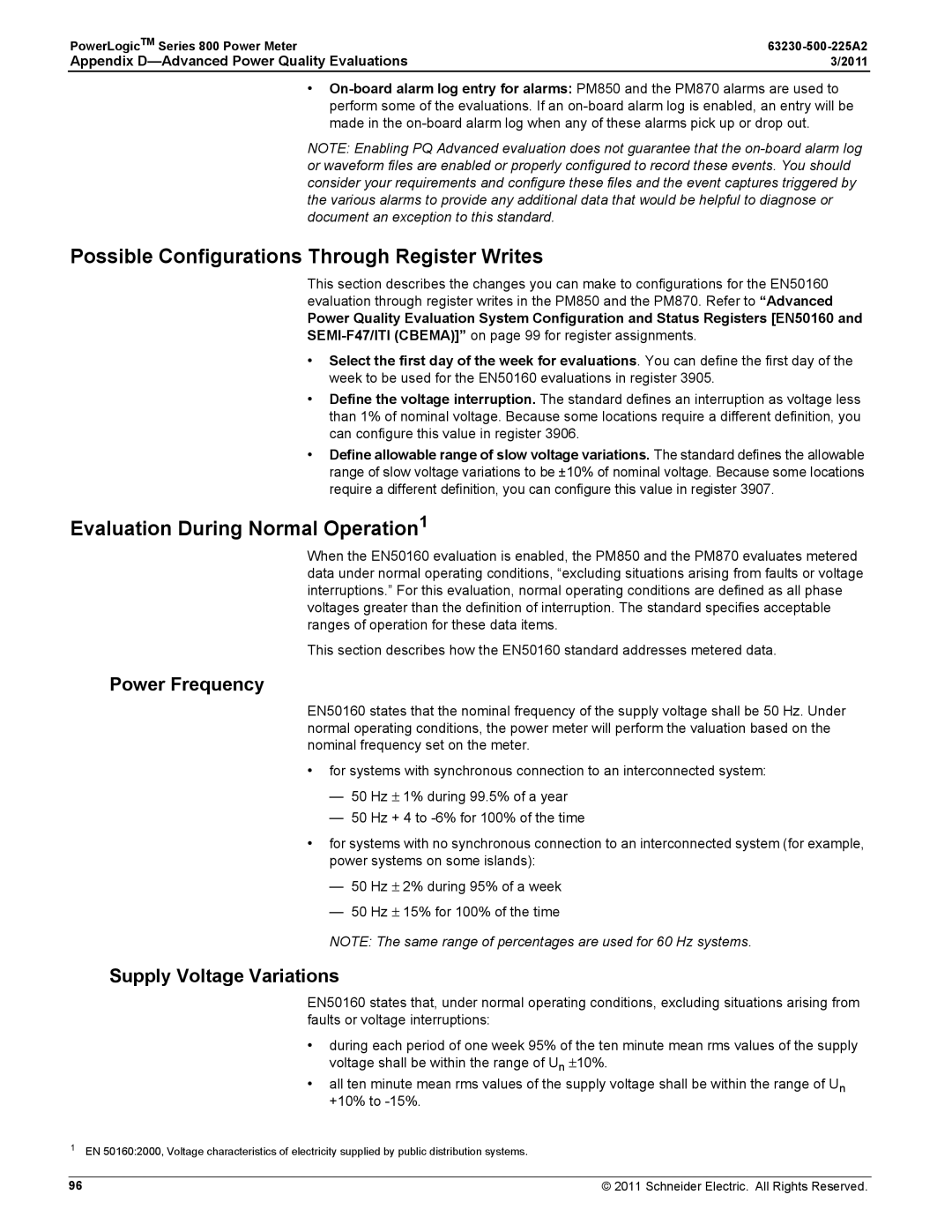PowerLogicTM Series 800 Power Meter | |
Appendix | 3/2011 |
•
NOTE: Enabling PQ Advanced evaluation does not guarantee that the
Possible Configurations Through Register Writes
This section describes the changes you can make to configurations for the EN50160 evaluation through register writes in the PM850 and the PM870. Refer to “Advanced
Power Quality Evaluation System Configuration and Status Registers [EN50160 and
•Select the first day of the week for evaluations. You can define the first day of the week to be used for the EN50160 evaluations in register 3905.
•Define the voltage interruption. The standard defines an interruption as voltage less than 1% of nominal voltage. Because some locations require a different definition, you can configure this value in register 3906.
•Define allowable range of slow voltage variations. The standard defines the allowable range of slow voltage variations to be ±10% of nominal voltage. Because some locations require a different definition, you can configure this value in register 3907.
Evaluation During Normal Operation1
When the EN50160 evaluation is enabled, the PM850 and the PM870 evaluates metered data under normal operating conditions, “excluding situations arising from faults or voltage interruptions.” For this evaluation, normal operating conditions are defined as all phase voltages greater than the definition of interruption. The standard specifies acceptable ranges of operation for these data items.
This section describes how the EN50160 standard addresses metered data.
Power Frequency
EN50160 states that the nominal frequency of the supply voltage shall be 50 Hz. Under normal operating conditions, the power meter will perform the valuation based on the nominal frequency set on the meter.
•for systems with synchronous connection to an interconnected system:
—50 Hz ± 1% during 99.5% of a year
—50 Hz + 4 to
•for systems with no synchronous connection to an interconnected system (for example, power systems on some islands):
—50 Hz ± 2% during 95% of a week
—50 Hz ± 15% for 100% of the time
NOTE: The same range of percentages are used for 60 Hz systems.
Supply Voltage Variations
EN50160 states that, under normal operating conditions, excluding situations arising from faults or voltage interruptions:
•during each period of one week 95% of the ten minute mean rms values of the supply voltage shall be within the range of Un ±10%.
•all ten minute mean rms values of the supply voltage shall be within the range of Un +10% to
1EN 50160:2000, Voltage characteristics of electricity supplied by public distribution systems.
96 | © 2011 Schneider Electric. All Rights Reserved. |
